Understanding Your Metabolism Is A Key To Better Health
Even if you’re in the middle of a deep sleep, or quietly reading a book, your body is always active. It never quite “shuts off,” because it’s always storing and consuming energy (from the food you eat) – and building up and breaking down molecules necessary to maintain your health.
This always-on process is called metabolism, which literally means “a state of change.”
Your body relies on metabolism to carry out all its functions – whether it’s storing or burning fat, regulating sugar levels, or keeping your neurons firing – so metabolism has a huge impact on your health.
When your metabolism is working as it should, you’ll have much more energy throughout the day – you won’t feel so sluggish and fatigued. You’ll also find it easier to gain muscle mass and lose fat because your body will be sending the right hormone “signals” to your metabolic system. Even your mood will be brighter if your metabolism is well-balanced. On the flip side, scientists have discovered that metabolic disturbances are linked with major depressive disorder – a testament to the mighty effect metabolism can have on all aspects of your well-being.
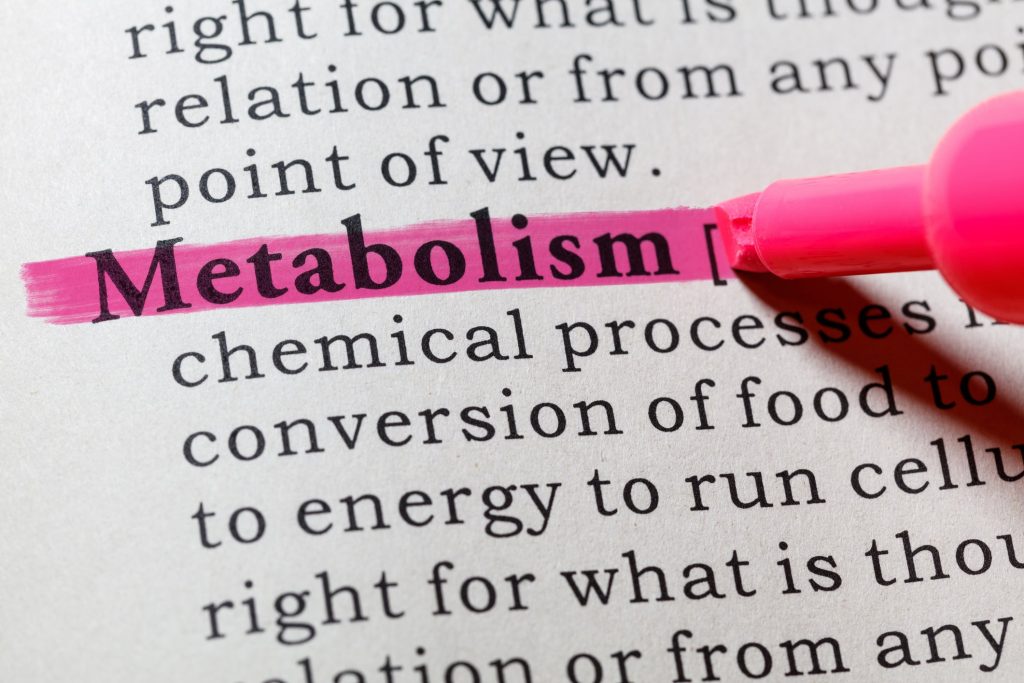
Not surprisingly, then, your body tightly controls its metabolism. It does this through swarms of small-but-powerful signal molecules known as hormones – which travel throughout your body in different amounts. So by checking in on your hormone levels, you can get a good gauge of how healthy your metabolism is – and, ultimately, how healthy your whole body is. This is why understanding your metabolism is key to better health.
If it weren’t for metabolism, all the good nutrients you eat wouldn’t do your body any good. Metabolism is how your body turns the nutrients in a delicious casserole or a tasty smoothie into energy – and into the raw materials your body needs to build muscles and repair tissues and organs.
Since metabolism has such a powerful impact on your body, you may be wondering what affects your metabolism. What factors can cause shifts in your metabolic health?
Without a doubt, your diet is one of the most important things that can alter your metabolism.

Because many nutrients serve as the building blocks for the hormones that regulate metabolism, if you have a well-balanced diet – you’re getting the nutrients you need and in the right quantities – then your metabolism will most likely function properly. But say you’re eating lots of foods that are high in sugar. This excess sugar will disrupt your metabolism, and put you at risk of developing metabolic diseases.
Exercise, too, has a profound effect on your metabolic health. In fact, some research suggests that long-term physical training makes your metabolism work more efficiently – so you burn more calories even when you’re not being active.
Something else that affects your metabolism is your age: your metabolism “slows down” as you age, so your body accumulates fat more easily. Certain behaviors can also cause changes to your metabolism. For example, if you’re not getting enough sleep, then your metabolism will be negatively affected – which can contribute to weight gain.

You may recall that earlier we said that metabolism is controlled by signal molecules called hormones – and that you can gain insights into your metabolism and health by understanding your hormone levels. Hormones tell your metabolic system when to store or use energy – and when it should build or break down important nutrients. While your body produces many hormones, there are 3 hormones in particular that can give you incredible information about your health. These three hormones are the thyroid hormones, testosterone, and cortisol.
THYROID HORMONES
Nestled at the front of your windpipe is a gland called the thyroid. And although it’s small – only a few inches in length – it plays a big role in the body’s metabolism. This gland is responsible for secreting two important hormones: T3 and T4.
These two hormones travel through your bloodstream and regulate your metabolic system in many ways (for example, they let your cells know when to either break down fats or store more fats). Production of thyroid hormones is controlled by a tiny gland situated in your brain – the pituitary gland. This gland squirts out a hormone of its own – the aptly-named thyroid-stimulating hormone (TSH).
If you have elevated TSH levels in your blood it’s very possible that your thyroid isn’t making enough hormones. (Your pituitary gland releases more TSH to send a strong signal to your thyroid that it’s time to make more thyroid hormones. When your thyroid hormone levels are too low – which can be caused by diseases of the thyroid gland, for instance – then your body starts making more fat than necessary. You’ll start gaining weight, and you might also experience fatigue and hair loss.
What happens if your bloodstream is flooded with way too much thyroid hormones? As you may have guessed, in this case your body will start rapidly breaking down fat. A healthy body requires some fat, but if your thyroid hormone levels are too high, then your body will eliminate too much of its fat. The result? Weight loss – along with some other not-very-desirable effects, such as higher blood pressure and sleep problems.
TESTOSTERONE
Though many people think of testosterone as only a male hormone, it’s incredibly important for healthy metabolism in both men and women. Testosterone is crucial to well-balanced fat metabolism and muscle production. In fact, lower-than-normal levels of testosterone prompt your body to increase its fat mass.
On other hand, if a man has too much testosterone coursing through his body, then he may be more irritable and have a lower sperm count – among other negative consequences. Women with too much testosterone may gain more weight, have excess acne, and even male pattern baldness.
Testosterone also helps regulate sleep and mood, so for all these reasons (and more) it’s important that your testosterone levels are within a normal, healthy range.
CORTISOL
Cortisol – dubbed the “stress hormone” – is released into your bloodstream when your body senses a threat or emergency. Cortisol causes your body to dump glucose (sugar molecules) into the bloodstream, providing you with the fuel you need to respond to the perceived threat. For example, if you’re out hiking and you suddenly encounter a fearsome predator – a bear, perhaps – then cortisol sparks a surge of glucose that gives you the energy to “fight or flight.”
But what if you’re always under stress? Maybe deadlines are always looming over your head, and the traffic congestion en route to the office doesn’t help matters. In situations like these – where you’re always stressed – cortisol will continue pumping you full of glucose. (Cortisol, after all, can’t distinguish the difference between a bear and an important deadline.)
Since your body won’t use all this excess glucose, it’ll turn the glucose into fat. Thus, chronic stress can lead to unhealthily high levels of cortisol – and result in weight gain.
Since your metabolism underpins so much of your health, it’s important to get a good understanding of how well your metabolism is functioning.
My upcoming Metabolic Reset will give you the support and plan to help reset your hormone balance and heal your metabolism.
Sign up here for your FREE 6-WEEK Metabolic Reset Hormone Balance Email Series.










 I’ve been in the health and fitness industry for nearly forty years which either means I am very old or very wise; (I am very old.)
I’ve been in the health and fitness industry for nearly forty years which either means I am very old or very wise; (I am very old.)

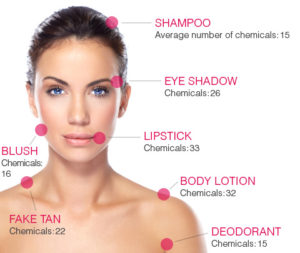 We wash our hair with them, brush them on our teeth, slather them on our bodies and apply them to our eyes, lips, and cheeks. Toxic irritants are present in most commercial shampoos, toothpaste, deodorants, cosmetics, and cleaning supplies.
We wash our hair with them, brush them on our teeth, slather them on our bodies and apply them to our eyes, lips, and cheeks. Toxic irritants are present in most commercial shampoos, toothpaste, deodorants, cosmetics, and cleaning supplies. In 2004 the Centers for Disease Control and Prevention (CDC) testing a much bigger sample of 2,500 people, detected an average 116 chemicals in subjects and finally, in 2005 a third study found traces of 287 chemicals in test subjects. These toxic chemicals create inflammation and disruption of our T cells, often setting us up for inflammatory disease and/or triggering an autoimmune response.
In 2004 the Centers for Disease Control and Prevention (CDC) testing a much bigger sample of 2,500 people, detected an average 116 chemicals in subjects and finally, in 2005 a third study found traces of 287 chemicals in test subjects. These toxic chemicals create inflammation and disruption of our T cells, often setting us up for inflammatory disease and/or triggering an autoimmune response. Eating clean. This means taking a closer look at what I have been eating and getting real about my protein sources and selections. I still avoid dairy, grains, glutens, sugar and processed foods, but have been a bit lax of late with my travels and eating desserts and drinking way too much. That’s gone, NOW. My belly is my reminder: Booze = Bloat and I ain’t digging it. I’ve also taken a look at my medications and supplement list and with the help of my Naturopathic doc, Alicia Johnson, I am taking only what I need and flushing the rest (more on this in another blog).
Eating clean. This means taking a closer look at what I have been eating and getting real about my protein sources and selections. I still avoid dairy, grains, glutens, sugar and processed foods, but have been a bit lax of late with my travels and eating desserts and drinking way too much. That’s gone, NOW. My belly is my reminder: Booze = Bloat and I ain’t digging it. I’ve also taken a look at my medications and supplement list and with the help of my Naturopathic doc, Alicia Johnson, I am taking only what I need and flushing the rest (more on this in another blog). Today we are installing a new whole house water filter to decrease the toxins in our water; getting a small freezer so we can purchase grass-fed beef and afford it; replacing our soaps, shampoos, deodorants, detergents and other cleaning supplies with chemical free options; and buying organic ALL the time instead of MOST of the time- especially those fruits and veggies on the “Dirty Dozen” pesticide list.
Today we are installing a new whole house water filter to decrease the toxins in our water; getting a small freezer so we can purchase grass-fed beef and afford it; replacing our soaps, shampoos, deodorants, detergents and other cleaning supplies with chemical free options; and buying organic ALL the time instead of MOST of the time- especially those fruits and veggies on the “Dirty Dozen” pesticide list.
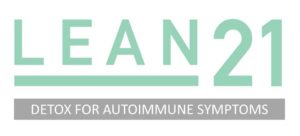 Click here for more information
Click here for more information
 Recently Herb and I went out on a date. We wanted to try a new, hot restaurant called 1900 so we made a reservation. Good news? We got in. Bad news? The only thing left open was at 6:00 pm. Now that might explain what happened next, but it was still shocking, and unwelcome, and altogether uncalled for.
Recently Herb and I went out on a date. We wanted to try a new, hot restaurant called 1900 so we made a reservation. Good news? We got in. Bad news? The only thing left open was at 6:00 pm. Now that might explain what happened next, but it was still shocking, and unwelcome, and altogether uncalled for. I looked at Herb and asked, “Did we cross over to this status without our knowledge? What’s with the all the raisins?”
I looked at Herb and asked, “Did we cross over to this status without our knowledge? What’s with the all the raisins?” I then packed a bag to drive with Herb to the Mayo clinic for the third and final visit in three weeks. It was to be a good day- at 2 pm he was scheduled to get his arm out of the straight cast he’s been wearing since having elbow surgery last month.
I then packed a bag to drive with Herb to the Mayo clinic for the third and final visit in three weeks. It was to be a good day- at 2 pm he was scheduled to get his arm out of the straight cast he’s been wearing since having elbow surgery last month. Age never bothered my client Rae Block. A diminutive force of nature, Rae’s power as a woman only increased as she aged because she only grew more into herself. She was funny; she was intense, she was smart, and she was irreverent.
Age never bothered my client Rae Block. A diminutive force of nature, Rae’s power as a woman only increased as she aged because she only grew more into herself. She was funny; she was intense, she was smart, and she was irreverent. “Hi, Rae. How are you?”
“Hi, Rae. How are you?”
 On a recent trip, I met a young woman who’d been in a horrible car accident several months before. She’d been near death, but not ready to die, had pleaded with God to return her to life.
On a recent trip, I met a young woman who’d been in a horrible car accident several months before. She’d been near death, but not ready to die, had pleaded with God to return her to life. As it turned out, her butt was just fine and we all had a magical day together in Tikal. As we sat in our circle the next day, telling our classmates about our adventure, my friend, near tears told the group about her surgery and concerns about going to Tikal.
As it turned out, her butt was just fine and we all had a magical day together in Tikal. As we sat in our circle the next day, telling our classmates about our adventure, my friend, near tears told the group about her surgery and concerns about going to Tikal. And so, when I am triggered, I remember a long night when I was suffering, feeling lost and hopeless, desperately wanting to help someone who would not be helped. Crying, I heard a voice. The voice said calmly, “Stop. This isn’t yours. He’s fully capable. He’s able to choose. It’s not about you. Remember, ‘One Soul. One Source.’ ”
And so, when I am triggered, I remember a long night when I was suffering, feeling lost and hopeless, desperately wanting to help someone who would not be helped. Crying, I heard a voice. The voice said calmly, “Stop. This isn’t yours. He’s fully capable. He’s able to choose. It’s not about you. Remember, ‘One Soul. One Source.’ ”

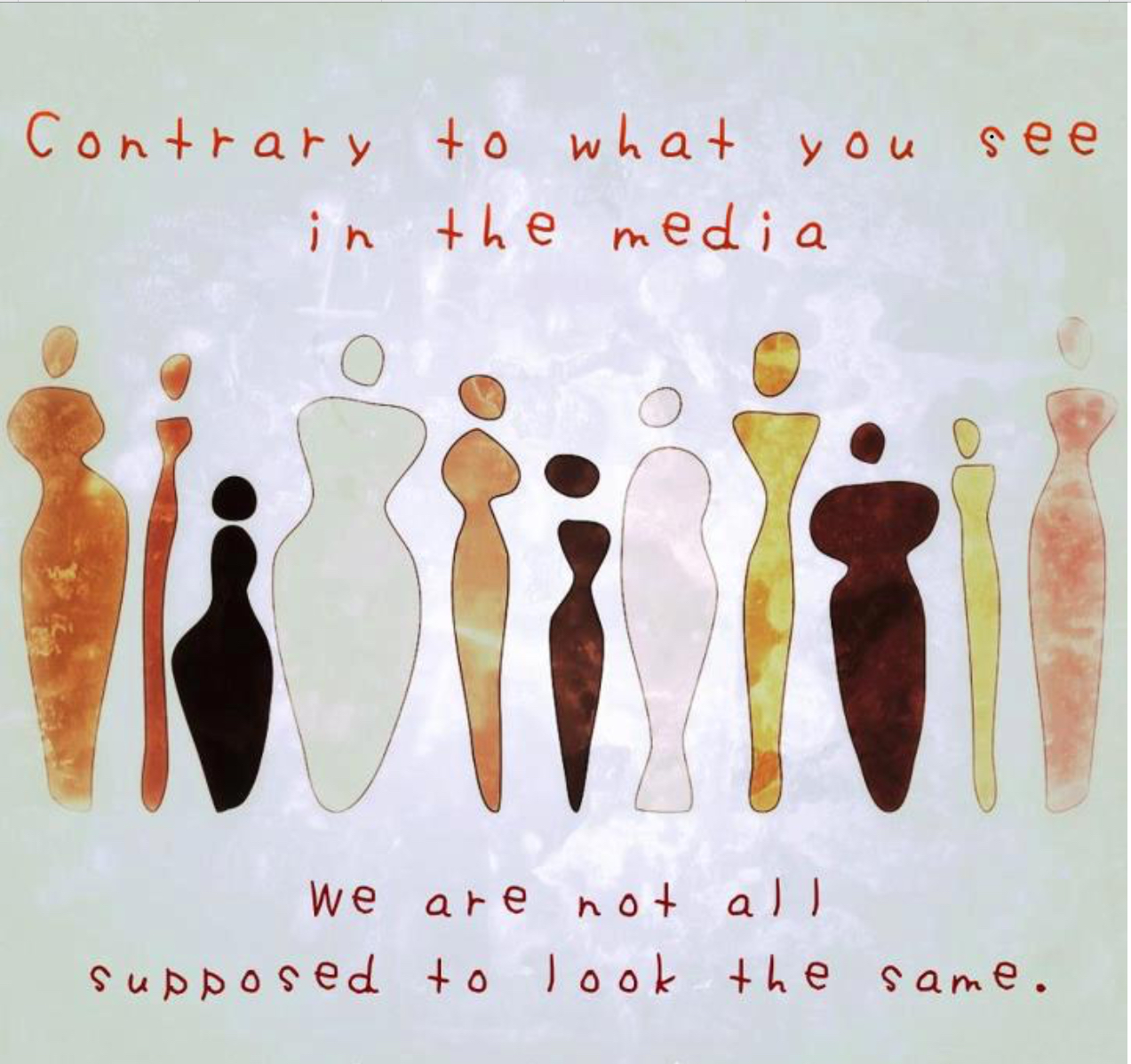
 As I’ve gotten older I am learning more about my body and appreciating it more for the amazing home it is. It’s no longer about losing 5 lbs, or fitting into the size 2 or feeling “acceptable”; it’s about being able to cherish the moments of my life, doing the things that I want to do, with the people I love, in a healthy, strong, 59-year-old body.
As I’ve gotten older I am learning more about my body and appreciating it more for the amazing home it is. It’s no longer about losing 5 lbs, or fitting into the size 2 or feeling “acceptable”; it’s about being able to cherish the moments of my life, doing the things that I want to do, with the people I love, in a healthy, strong, 59-year-old body.
 In our last T School Intensive discussion about the importance of keeping track of your food, exercise and sleep, one of our participants asked how best to record our exercise calories burned in the
In our last T School Intensive discussion about the importance of keeping track of your food, exercise and sleep, one of our participants asked how best to record our exercise calories burned in the 
 HIGH-INTENSITY INTERVAL TRAINING (HIIT) IS THE MOST EFFECTIVE WAY TO STIMULATE THE EPOC EFFECT.
HIGH-INTENSITY INTERVAL TRAINING (HIIT) IS THE MOST EFFECTIVE WAY TO STIMULATE THE EPOC EFFECT. SO HOW TO KEEP THIS SIMPLE IN MY FITNESS PAL?
SO HOW TO KEEP THIS SIMPLE IN MY FITNESS PAL? THE BOTTOM LINE
THE BOTTOM LINE
 Is Eating Fat Bad for You?
Is Eating Fat Bad for You? “Saturated Fats” found in animal products like milk, meat, cheese, lard, and butter may also be found in plant sources like coconuts. Saturated fats are usually solid at room temperature and have been credited with increasing our risk for heart and cardiovascular disease. That’s because the research showed that eating saturated fats increased our blood fats and cholesterol which was associated with greater risk for heart disease.
“Saturated Fats” found in animal products like milk, meat, cheese, lard, and butter may also be found in plant sources like coconuts. Saturated fats are usually solid at room temperature and have been credited with increasing our risk for heart and cardiovascular disease. That’s because the research showed that eating saturated fats increased our blood fats and cholesterol which was associated with greater risk for heart disease.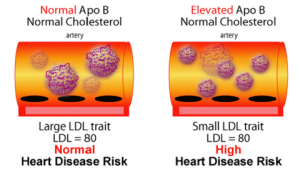 Further, scientists have discovered that our LDL lipoproteins come in two sizes and consistencies, small and dense and large and fluffy,
Further, scientists have discovered that our LDL lipoproteins come in two sizes and consistencies, small and dense and large and fluffy,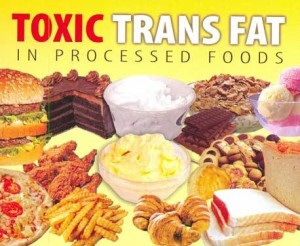 The real enemy in fighting fat is avoiding Transfats at all cost. Trans fats are man made hydrogenated oils that were designed to help extend shelf life of processed foods. Trans fat is often found in margarine, baked goods, prepared cookie dough and biscuits, and commercially fried foods and snack chips
The real enemy in fighting fat is avoiding Transfats at all cost. Trans fats are man made hydrogenated oils that were designed to help extend shelf life of processed foods. Trans fat is often found in margarine, baked goods, prepared cookie dough and biscuits, and commercially fried foods and snack chips
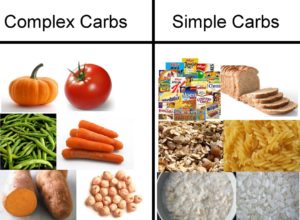 Complex carbs: Carb-containing foods that are in their whole, unprocessed form. Foods in this category include fruits, vegetables and legumes.
Complex carbs: Carb-containing foods that are in their whole, unprocessed form. Foods in this category include fruits, vegetables and legumes.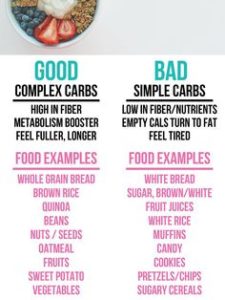 Health benefits of Complex Carbs
Health benefits of Complex Carbs There are billions of “good” bacteria lining your intestines. They’re known as your gut microbiota. They play a role in managing several digestive disorders and have been linked to various other aspects of health.
There are billions of “good” bacteria lining your intestines. They’re known as your gut microbiota. They play a role in managing several digestive disorders and have been linked to various other aspects of health. Inflammation is the body’s natural response to infection or injury. However, long-term inflammation can increase the risk of several chronic diseases. While sugary foods and refined flours promote inflammation, complex carbs help reduce inflammation.
Inflammation is the body’s natural response to infection or injury. However, long-term inflammation can increase the risk of several chronic diseases. While sugary foods and refined flours promote inflammation, complex carbs help reduce inflammation.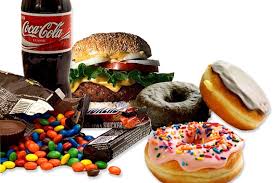 Simple carbs like refined grains and added sugars are horrible for your body.
Simple carbs like refined grains and added sugars are horrible for your body. Increased heart disease risk: Sugar and refined grains increase heart disease risk. A study found those who ate the most refined grains were 2–3 times more likely to develop heart disease than those who ate the least.
Increased heart disease risk: Sugar and refined grains increase heart disease risk. A study found those who ate the most refined grains were 2–3 times more likely to develop heart disease than those who ate the least.